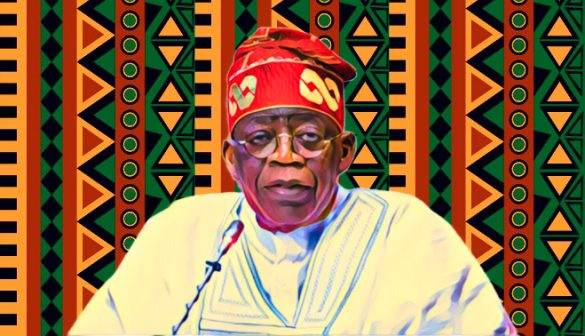In a landmark ruling, a US court has ordered the Chicago State University (CSU) to release the academic records of President Tinubu to his rival, Atiku Abubakar, by Monday, October 2
Atiku, the presidential candidate of the Peoples Democratic Party (PDP), had filed a lawsuit in the US seeking to access Tinubu’s educational credentials, which he claimed were forged or falsified.
Tinubu, the incumbent president and the candidate of the All Progressives Congress (APC), had graduated from CSU in 1981 with a Bachelor of Science degree in Business Administration.
However, Atiku alleged that Tinubu did not meet the admission requirements of CSU and that his degree was obtained through fraud or misrepresentation.
Atiku also challenged Tinubu’s eligibility to run for president in Nigeria, arguing that he did not possess a minimum of a secondary school certificate, as required by the constitution.
The US court, presided over by Judge Nancy Maldonado, agreed with Atiku and granted his application to obtain Tinubu’s academic records from CSU.
The court noted that CSU did not object to the request and that any intrusion on Tinubu’s privacy interests was outweighed by Atiku’s interest in the discovery
The court also set an expedited schedule for the completion of the discovery, given the pending deadline of the Supreme Court of Nigeria, which is expected to deliver its final verdict on the presidential election dispute on October 5.
Atiku had lost the presidential election to Tinubu on February 23, 2023, by a margin of about four million votes, according to the official results announced by the Independent National Electoral Commission (INEC).
However, Atiku rejected the outcome and filed a petition at the Presidential Election Tribunal, alleging widespread irregularities, malpractices, and manipulation of the results by the APC and INEC.
The tribunal dismissed Atiku’s petition on September 11, 2023, affirming Tinubu’s victory and holding that he was duly elected and qualified to be president.
Atiku appealed the tribunal’s decision at the Supreme Court of Nigeria, which has the final say on the matter.
The apex court has fixed October 5, 2023, as the date for the hearing and determination of the appeal.
Atiku’s lawyers have expressed optimism that the US court’s ruling will boost their case and prove that Tinubu was not qualified to run for president.
They said they would present the evidence of Tinubu’s academic records to the Supreme Court of Nigeria and expose his alleged lies and deception.
Tinubu’s lawyers, on the other hand, have dismissed the US court’s ruling as irrelevant and inconsequential, saying that it has no bearing on the Nigerian legal system and the electoral process.
They said they were confident that the Supreme Court of Nigeria would uphold the tribunal’s judgment and dismiss Atiku’s appeal as lacking in merit and substance.
The US court’s ruling has generated mixed reactions from Nigerians, who are eagerly awaiting the final outcome of the presidential election dispute.
Some have hailed the ruling as a victory for justice and democracy, while others have criticized it as a foreign interference and a waste of time.
The ruling has also sparked renewed debate on the need for electoral reforms and transparency in Nigeria, especially in the verification and validation of candidates’ credentials and qualifications.
Many Nigerians have called for the establishment of an independent and credible body that would vet and verify the educational and professional backgrounds of all aspirants and candidates for public offices, to prevent fraud and forgery.
They have also urged the government and the political parties to respect the rule of law and the will of the people, and to accept the outcome of the Supreme Court’s judgment, whatever it may be.
They have also appealed for peace and unity among Nigerians, regardless of their political affiliations and preferences, and to work together for the progress and development of the country.
Source: PUNCH


